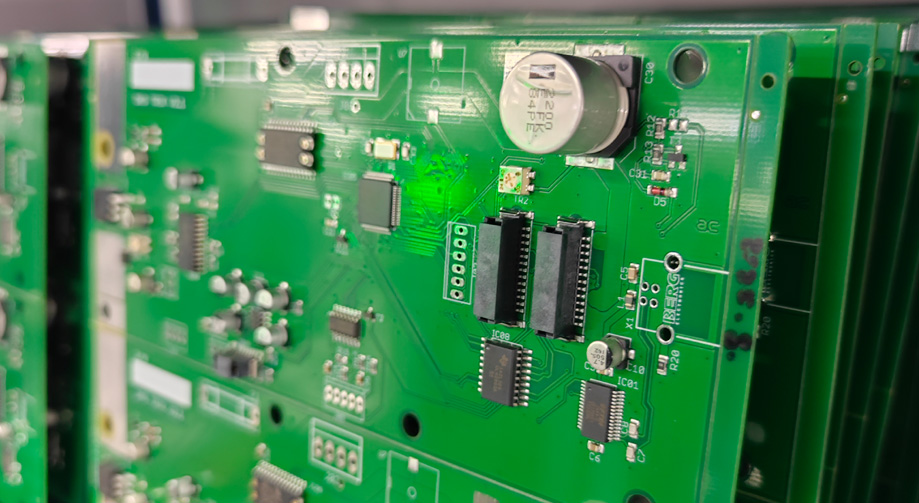- English
- Español
- Português
- русский
- Français
- 日本語
- Deutsch
- tiếng Việt
- Italiano
- Nederlands
- ภาษาไทย
- Polski
- 한국어
- Svenska
- magyar
- Malay
- বাংলা ভাষার
- Dansk
- Suomi
- हिन्दी
- Pilipino
- Türkçe
- Gaeilge
- العربية
- Indonesia
- Norsk
- تمل
- český
- ελληνικά
- український
- Javanese
- فارسی
- தமிழ்
- తెలుగు
- नेपाली
- Burmese
- български
- ລາວ
- Latine
- Қазақша
- Euskal
- Azərbaycan
- Slovenský jazyk
- Македонски
- Lietuvos
- Eesti Keel
- Română
- Slovenski
- मराठी
- Srpski језик
How PCBA Factories Can Enhance Their International Market Competitiveness Through Environmental Certification
With the increasing global emphasis on environmental protection and sustainable development, environmental certification for PCBA (Printed Circuit Board Assembly) factories has become a crucial tool for enhancing their international competitiveness. Environmental certification not only strengthens customer trust but also helps companies stand out in the international market. This article will explore how PCBA factories can enhance their competitiveness through environmental certification.

1. Understanding the Importance of Environmental Certification
Definition of Environmental Certification
Environmental certification refers to a company's certification of the environmental compliance of its products or services through specific standards and assessment procedures. These certifications typically include RoHS (Restriction of the Use of Certain Hazardous Substances), REACH (Registration, Evaluation, Authorization and Restriction of Chemicals), and ISO 14001 (Environmental Management System Certification).
Enhancing Market Image
By obtaining environmental certification, PCBA factories can demonstrate their commitment to environmental protection to their customers. This not only enhances the company's market image, but also attracts more environmentally conscious customers and strengthens brand value.
2. Market Advantages of Environmental Certification
Meeting International Market Demand
Many countries and regions are increasingly stringent in their environmental requirements for imported products. Obtaining relevant environmental certifications allows PCBA factories to more easily enter the international market and meet customer demands for environmentally friendly products.
Gaining a Competitive Advantage
In a highly competitive market, environmental certifications have become a key differentiator for product quality and value. PCBA factories with environmental certifications can increase their chances of winning bids during bidding, thereby securing more business opportunities.
3. Implementing an Environmental Management System
Adopting ISO 14001
ISO 14001 is an internationally recognized environmental management system standard. PCBA factories can establish this system to systematically manage environmental factors and impacts. Through continuous improvement, companies can not only reduce environmental risks but also improve overall operational efficiency.
Regular Review and Improvement
After implementing an environmental management system, regular review and improvement are crucial. PCBA factories should identify deficiencies in environmental management through internal audits and performance evaluations, and implement effective measures to address them, ensuring continued compliance with environmental certification requirements.
4. Raising Employee Environmental Awareness
Providing Environmental Training
Employees are a vital force in achieving environmental goals. PCBA factories should conduct regular environmental training to enhance employee awareness and sense of responsibility, ensuring they understand the company's environmental policies and goals, and actively participate in environmental practices.
Encouraging Employee Participation
Establishing an environmental incentive mechanism encourages employees to submit environmental suggestions and improvement plans. Employee participation not only helps improve the company's environmental performance but also strengthens team cohesion.
5. Strengthening Supply Chain Environmental Management
Selecting Qualified Suppliers
When sourcing materials, PCBA factories should prioritize suppliers with environmental certifications. Working with suppliers with strong environmental awareness not only ensures the environmental compliance of raw materials but also improves the environmental performance of the entire supply chain.
Evaluating the Environmental Performance of the Supply Chain
Evaluating the environmental performance of the supply chain ensures that its environmental practices during procurement, production, and transportation meet the company's standards. This assessment helps optimize supply chain management and further enhance the company's environmental image.
Conclusion
Effective certification can help PCBA factories enhance their competitiveness in the international market and meet customer environmental requirements. This not only helps companies stand out in the market but also lays the foundation for sustainable development. As environmental regulations become increasingly stringent, implementing effective environmental management and obtaining relevant certifications will become important strategies for PCBA factories to gain a foothold in the international market. By continuously improving environmental awareness and management levels, PCBA factories will be able to better cope with future challenges and achieve long-term development.
Send Inquiry
-
Delivery Service






-
Payment Options









